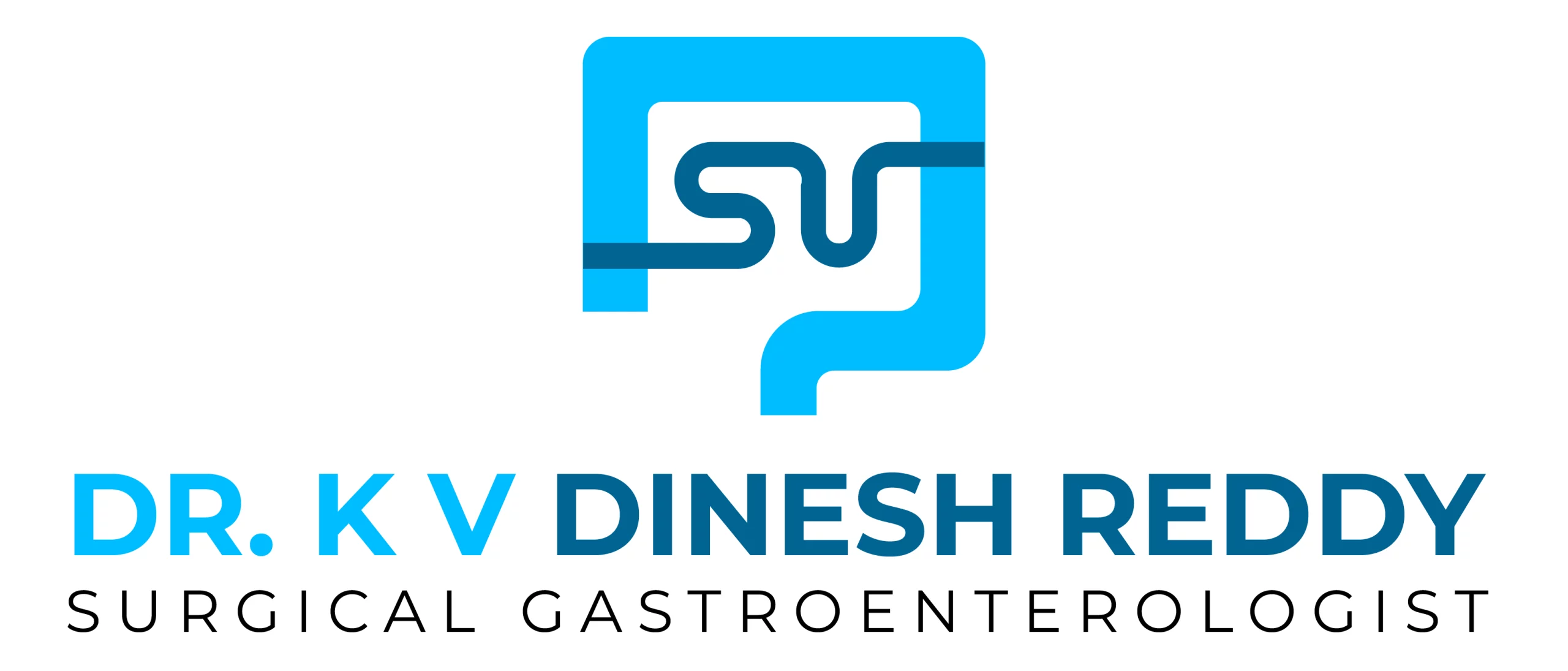Fatty Liver Treatment in Hyderabad
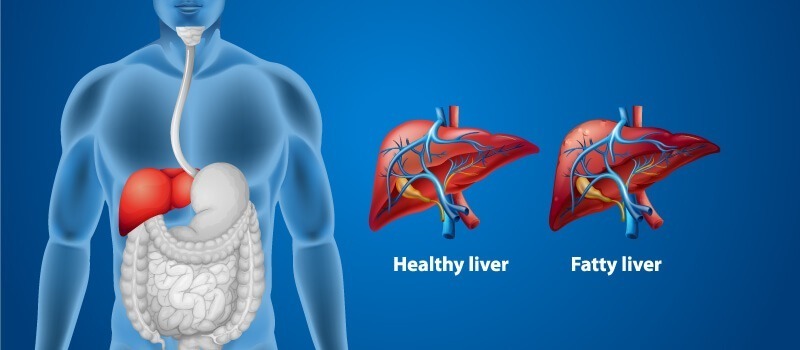
Fortunately, there are effective treatments available for Fatty Liver Treatment in Hyderabad, In this article, we’ll discuss the symptoms, types, Diagnosis, and treatment options available for Fatty Liver Treatment in Hyderabad.
Fatty liver disease is a serious health condition that affects millions of people around the world. In Hyderabad, India, this condition is becoming increasingly common due to poor lifestyle habits, such as unhealthy diets and lack of physical activity.
The liver is the second largest organ inside your body. It helps in digesting food, storing energy, and removing toxins from your blood. Normally, a small amount of fat is present in a healthy liver. But, if the accumulation of fat exceeds 5 to 10 percent of the liver’s weight, it can lead to a condition called fatty liver disease.
Fatty liver disease is a common condition that occurs due to fat buildup in liver cells, leading to inflammation, scarring, and liver damage. If the condition is left untreated, it can progress to liver failure. However, with early diagnosis and proper treatment, it can be reversed.
If you are looking for the best fatty liver treatment in Hyderabad, consult Dr. K V Dinesh Reddy. He is a renowned gastroenterologist in Hyderabad who can provide expert guidance and treatment.
Types of Fatty Liver Disease - Fatty Liver Treatment in Hyderabad
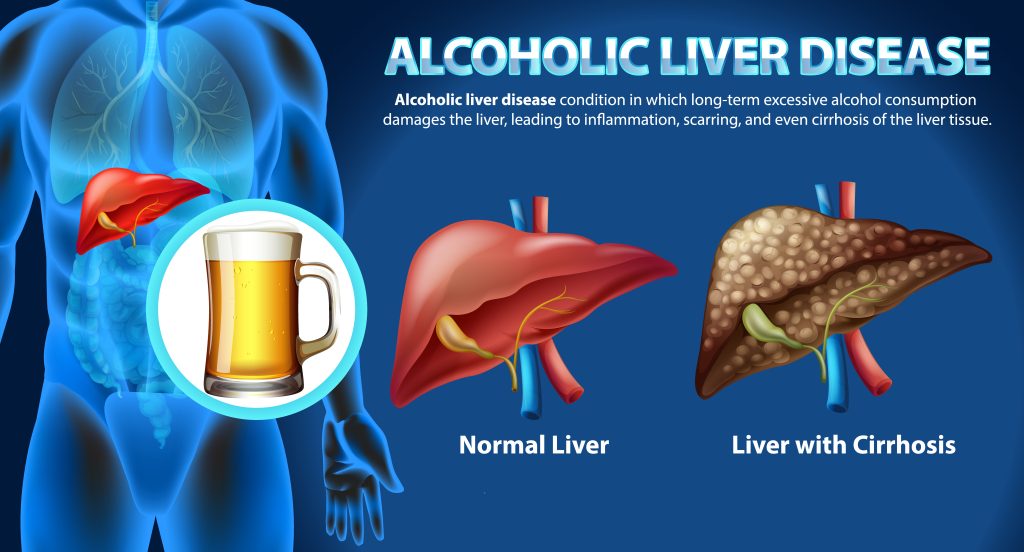
1. Alcoholic fatty liver disease (AFLD)
It is caused by excessive alcohol consumption. When you consume alcohol, your liver works to break it down and remove it from your body.
But, the process can result in the production of harmful substances. These substances can damage liver cells, cause inflammation, and weaken your immunity.
2. Nonalcoholic fatty liver disease (NAFLD)
This type of fatty liver disease does not occur because of alcohol consumption.
It is associated with obesity, insulin resistance, high blood sugar, high blood pressure, and high levels of fats in the blood.
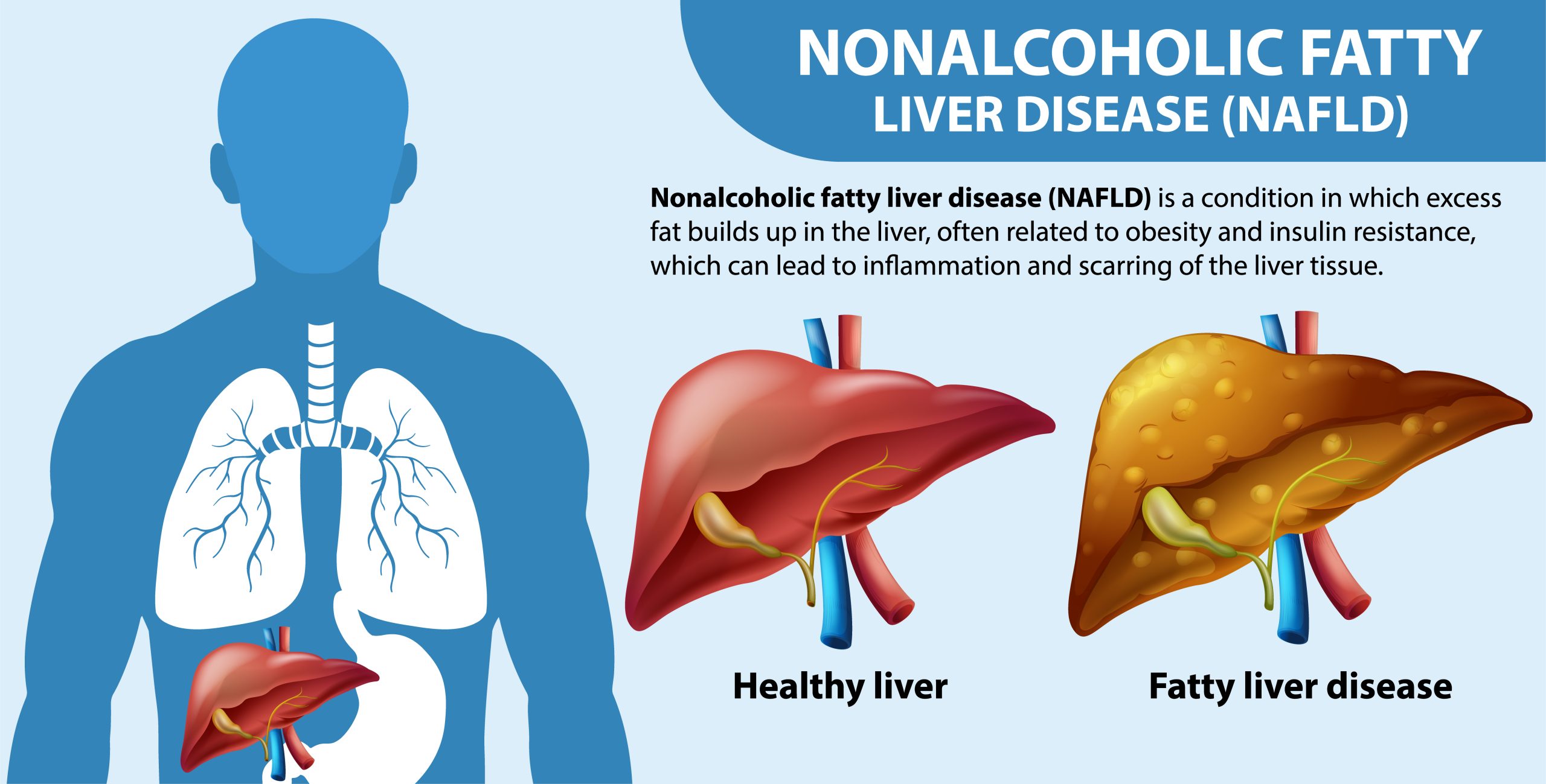
NAFLD is of two types:
- Simple fatty liver: It occurs when there is fat accumulation in the liver, but there is no inflammation or damage to liver cells. This condition is generally not serious and does not progress to severe liver problems.
- Nonalcoholic steatohepatitis (NASH): It is a more severe form of NAFLD with fat accumulation and inflammation in the liver. This inflammation and damage to liver cells can lead to fibrosis and cirrhosis.
Factors Contributing to the Development of Fatty Liver Disease
Some people can develop the disease without having any pre-existing problems. However, the following risk factors increase the likelihood of having it:
- Type 2 diabetes and prediabetes
- Obesity or being overweight
- Middle age or older (although children can also get it)
- Hispanic or non-Hispanic white ethnicity (less common in African Americans)
- High blood cholesterol and triglyceride levels
- High blood pressure
- Certain medications, like corticosteroids and cancer drugs
- Certain metabolic disorders
- Rapid weight loss
- Certain infections, such as hepatitis C (a viral infection that primarily affects the liver)
- Exposure to certain toxins
Fatty Liver Treatment in Hyderabad: Common Symptoms
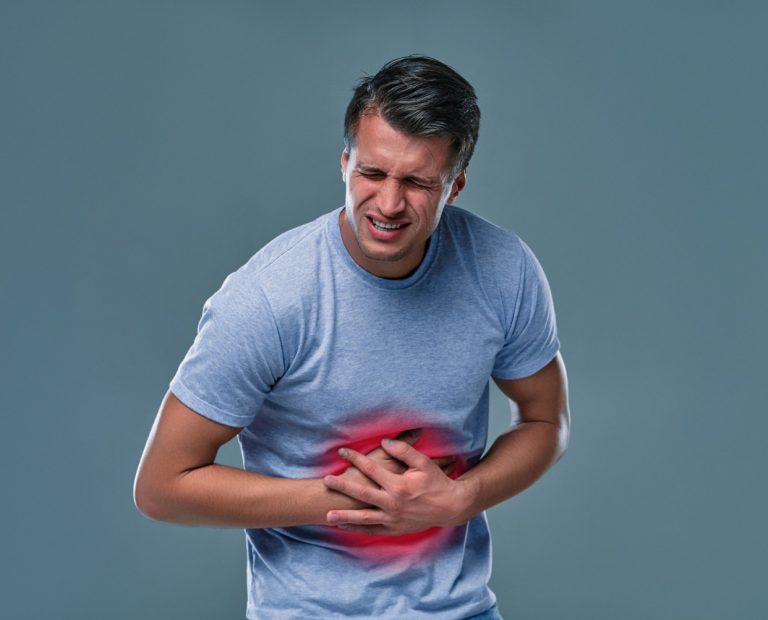
You may not experience any noticeable symptoms initially. However, if you do, the following symptoms may occur:
- Pain in the upper right part of your abdomen
- Extreme tiredness
- Loss of appetite or weight loss
If the disease progresses to an advanced stage, you may have symptoms such as:
- Swollen belly due to fluid buildup
- Yellowish skin and eyes due to a condition called jaundice
- Mental confusion
- Easy bruising or bleeding
- Dark-colored urine
- Pale stools
- Nausea
Diagnosis of Fatty Liver Disease
Because the majority of people have no symptoms, your doctor may be the first one to notice it. The doctor will take your medical history and ask about your alcohol use, medications, diet, and other health conditions. This is to differentiate between ALD and NAFLD.
The doctor may also perform a physical examination to look for signs of fatty liver disease, such as:
- An enlarged liver
- Signs of cirrhosis, such as jaundice
To confirm the diagnosis, the doctor may advise a few tests. This includes:
Blood test: If the test indicates elevated liver enzymes, it may indicate a liver problem.
Imaging tests: Your doctor may recommend an ultrasound, CT scan, or MRI to detect fat in your liver and the stiffness of your liver.
Liver stiffness may indicate fibrosis or scarring of the liver. In such cases, a biopsy may be required to confirm the diagnosis and assess the extent of the liver damage. This procedure involves numbing the area, using a special needle to remove a small tissue sample from the liver, and sending it to a lab for evaluation.
Fatty Liver Treatment in Hyderabad
There are various treatments available for fatty liver disease in Hyderabad, ranging from lifestyle modifications to medications. The first line of treatment for fatty liver disease is usually lifestyle modifications, including weight loss, a healthy diet, regular exercise, and abstaining from alcohol. These lifestyle changes can help reduce the amount of fat in the liver and improve liver function.
Currently, there is no medication for fatty liver disease. Instead, doctors aim to help patients manage factors that contribute to the condition and make lifestyle changes to improve their overall health. The recommended treatments for fatty liver disease are:
Lifestyle modifications: Patients are advised to avoid alcohol consumption to prevent further liver damage. They are also encouraged to adopt healthy habits, including a vegetarian, low-fat, and fibre-rich diet.
Fried foods should be avoided, and physical activity should be increased through aerobic exercises like walking and swimming. It is recommended to lose weight, and patients are provided with a customized diet plan.
Medications to manage underlying conditions: Addressing the root cause of fatty liver disease is crucial. Treatment for insulin resistance, diabetes, and hypertension may be prescribed to manage these conditions.
Supportive medications: Some medicines may be prescribed to maintain the liver’s health and prevent it from progressing to fibrosis or cirrhosis.
Surgery: In severe cases where the fatty liver has progressed to cirrhosis or liver cancer, surgery may be needed.
While fatty liver disease is a serious condition, it is often reversible with lifestyle modifications and proper medical care. With early diagnosis and proper treatment, you can successfully manage the condition and prevent its complications.
If you are experiencing any of the above symptoms or suspect that you may have fatty liver disease, consult Dr. K V Dinesh Reddy to get the best fatty liver treatment in Hyderabad.
We hope that this article helped you gain all the information you needed to know for Fatty Liver Treatment in Hyderabad, thanks for reading!
Best Gastroenterologist in Hyderabad

Dr. K V Dinesh Reddy
MBBS; MS (Gen.Surg); DNB (Surg.Gastro)
Dr. K V Dinesh Reddy is a highly experienced gastroenterologist with more than ten years of experience.
He strongly believes that surgery should only be considered as a last resort and prefers a holistic approach to treatment. So, if a disease can be effectively treated with medication, he never recommends surgery.
Frequently Asked Questions
Here are answers to some of the questions you might have about Fatty Liver
Yes, fatty liver can often be reversed through lifestyle changes. Fatty liver happens when fat accumulates in liver cells. By adopting a healthier diet, exercising regularly, and managing weight, you can reduce the fat in your liver and improve its function. Avoiding excessive alcohol consumption is also crucial. These changes can help the liver heal and return to a healthier state. However, if left untreated, fatty liver can lead to more serious conditions. It’s important to consult a healthcare professional for guidance and regular check-ups to monitor your liver health and ensure your efforts are effective.
No, alcoholic fatty liver and non-alcoholic fatty liver are not the same. Alcoholic fatty liver is caused by excessive alcohol consumption, which leads to fat buildup in the liver. Non-alcoholic fatty liver (NAFLD) is when fat accumulates in the liver in people who drink little to no alcohol. Both conditions can progress to more serious liver issues if not managed, but their causes are different. NAFLD is often linked to factors like obesity, high cholesterol, and insulin resistance. It’s important to address the underlying causes of each type and work with a healthcare provider to prevent complications and promote liver health.
Yes, if you have fatty liver, it’s a good idea to avoid certain foods. Sugary foods and drinks, like sodas and sweets, can worsen the condition. High-fat foods, especially fried and processed ones, should be limited. Cut down on red meat and opt for lean proteins like fish and chicken. Minimize salt intake to help prevent fluid buildup. Alcohol should be avoided or consumed in moderation. Instead, focus on a balanced diet rich in fruits, vegetables, whole grains, and lean proteins. Drinking plenty of water and maintaining a healthy weight can also support your liver health. Remember, consulting your healthcare provider for personalized guidance is important.
Yes, having fatty liver can increase the risk of developing liver cancer. Fatty liver is a condition where fat accumulates in liver cells. Over time, if left untreated, it can progress to more serious liver diseases, including cirrhosis, which further raises the risk of liver cancer. The inflammation and damage caused by fatty liver can contribute to the development of cancerous cells. However, not everyone with fatty liver will develop cancer. Managing fatty liver through a healthy lifestyle, regular medical check-ups, and following your doctor’s advice can help reduce the risk of complications, including liver cancer.
Yes, there is a connection between fatty liver and diabetes. Fatty liver can make the body less sensitive to insulin, a hormone that controls blood sugar levels. This can lead to higher levels of sugar in the blood, increasing the risk of type 2 diabetes. Likewise, diabetes can contribute to the development of fatty liver. These conditions often go hand-in-hand, creating a cycle where one can worsen the other. Managing a healthy weight, eating well, exercising, and controlling blood sugar levels can help break this cycle and reduce the risk of both fatty liver and diabetes. Regular medical check-ups are important for monitoring and addressing these concerns.
